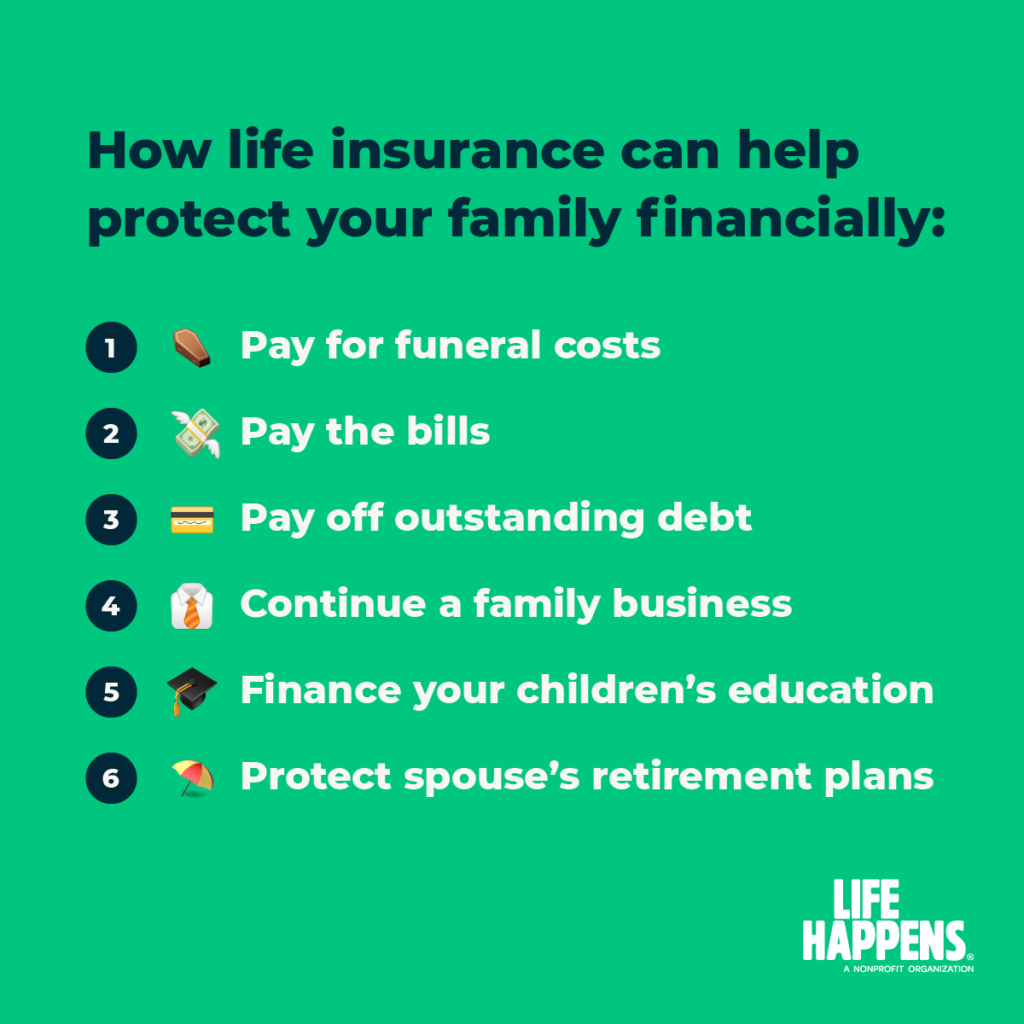Get Educated During Life Insurance Awareness Month
September is Life Insurance Awareness Month, promoting information that can explain the benefits, costs, and uses for this valuable financial tool.
Life insurance is designed to serve as a safety net for your dependents in the case of your death. It can replace that lost income, cover your funeral expenses, pay off debt, and give your family the peace of mind that comes with financial security.
Purchasing this essential asset may be confusing if you’re not familiar with how it works (and most people are not). Our Florida Farm Bureau insurance agents are skilled in answering these questions and helping folks get the protection they need.
Below, we share some of the most frequently asked questions that people want to know about life insurance.
Why Do I Need Life Insurance?
Life insurance offers your family (or anyone who depends on you for monetary support) the financial protection they need if you die. The death benefit, or tax-free lump sum payment your beneficiary will receive upon your death, can be customized to fit the needs of your family. Ideally, the amount should be enough to cover expenses like your burial, home mortgage, children’s college debt and more.

Which is Better, Term or Whole Life Insurance?
Both term and whole life insurance options should be carefully considered before you make a purchase.
Term life insurance is less expensive and provides coverage for a predetermined period, usually 10, 20, or 30 years. If you live out the policy’s term, your coverage ends, and there is no payout. The cost is the same throughout the term. The dollar amount of coverage you purchase should be enough for your family to replace your income and help with other services.
Whole life insurance is more detailed and costs more, but it offers more benefits and covers you until death, with no rise in your payments. It offers permanent protection, a death benefit that is guaranteed, and cash value that grows (tax deferred) at a fixed rate. Some whole life policies may also earn annual dividends.
When considering your choice of whole or term life insurance, take into account the purpose of the coverage, the length of the coverage, and how much you can pay.
How Much Does Life Insurance Cost?
How is the cost of insurance calculated? Every person’s or family’s policies will be different, and the cost is dependent on several factors, including the following:
- The type of policy you choose: whole life policies cost more than term life policies because they last your entire life and build cash value.
- Underwriting: simplified and guaranteed issue policies tend to be more expensive.
- Your coverage and term length.
- Your age: younger people typically have lower rates.
- Your health status: healthier people typically have lower rates.
- Your tobacco use: non-smokers typically have lower rates.
- Risky hobbies or pastimes: activities such as skydiving or skateboarding pose high risk.
How Much Life Insurance Do I Need?
Two important components should be forefront when calculating the amount of insurance you will need. First, consider what financial resources (such as Social Security or retirement benefits, investments or other assets) will be available for your survivors, and, secondly, what your survivors’ financial needs will include.
While some insurance experts propose that you purchase five to eight times your current income in life insurance, there are several questions you should consider regarding your own situation, including the following:
- How much of the family income do I provide?
- If I were to die, how would my survivors, especially my children, get by?
- Do I want to set aside funds for my children to finish their education?
- How will my family pay final expenses and repay debts after my death?
- Will there be estate taxes to pay after my death?
Why Should a Stay-at-Home Parent Buy Life Insurance?
It’s easy to think of life insurance as a safety net to replace income if the worst happens to the family breadwinner, but what if something happens to a stay-at-home parent?
The reality is that having a life insurance policy for that person does not replace income–it provides the money to cover all the jobs he or she performed at home. This can include:
- Childcare
- Meal preparation
- House cleaning
- Chauffeuring
- Laundry duties
- Shopping
- Lawn upkeep
- Education
Why is it Better to Buy Life Insurance When You Are Young?
Insurance rates are based on risk factors, and younger people are usually healthier people who will live long lives. For most people, the ideal time to buy life insurance is when you’re in your 20s, before chronic conditions like high blood pressure or cholesterol may appear. You will spend substantially less in premiums If you can get a life insurance policy before any of these conditions develop.
Should I Buy Life Insurance for My Child?
It is not commonly recommended that buying life insurance for children is necessary, as life insurance is meant to be used as income replacement. If your child has a chronic illness that may worsen as he or she ages, life insurance may be an option to consider. Generally, other savings vehicles such as a 529 plan are a better choice.
Purchase Life Insurance from the Experts at Farm Bureau Insurance
The first step with life insurance is to schedule an appointment with a Florida Farm Bureau insurance agent. They can do a thorough review of your needs and help build a life insurance policy that works best for you and your family. Use our Agent Finder to get started.

